Skidmarks: Trophies
—Klingon Proverb (also attributed to basketball coach Adolph Rupp, who was not Klingon*)
Some of us just have to win. Some of us, not so much.
A decade or so ago, I got to spend a few days with Steve Crevier, 1998 AMA Supersport champ and multi-time Canadian Superbike champion. I was helping another moto-website with an open-class comparison and the editors had flown Crevier to Monterey to assist with the testing. In addition to being a down-to Earth (and earthy) sort of guy, Crevier was fascinating, at least to me.
We were in a bar in Seaside, California the evening before the test, killing time before dinner. The bar, an old-school kind of place, had a shuffleboard table (remember those?), complete with a few rustic-looking locals shuffleboarding away. The racer said he hadn’t played before, so beer in hand, Crevier wandered over and started watching the plaid-clad bearded guys play their game, tracking their moves and stances and asking occasional questions. He asked if he could try, and they invited us to join. We played a game or two, and I got bored (there’s a reason you usually only see shuffleboard on a cruise ship) and headed back to my stool.
An hour later, Crevier was still playing, playing with total focus and deep concentration. He was winning and the local guys had become very quiet. What stuck with me is that Crevier played to win. Sure, he probably enjoyed the activity – whatever it was – but when he did something, it was to win. It didn’t matter if it was for the Canadian Superbike Championship (which he won six times), the Canadian XR1200 Cup (which he won all three years), or bragging rights for winning a few shuffleboard games (which, as I recall, he didn’t exercise, choosing instead to relate stories that were notably un-Canadian in their spiciness). He was in it to win it
I was reminded of this small but mighty racer last Sunday, while on my usual Sunday morning ride. When I started doing the ride, I was more competitive. I rode nearer to the front of the pack of like-minded loonies, though not actually at the front. As the years went by, I would mentally place myself in consecutively slower classes – after dropping out of the first pack of riders, I vied for the title of Fastest Guy who isn’t Really a Fast Guy. Failing that, I signed up for Fastest Rider who Doesn’t Show Up Every Week. By the early 2000s, I was entered in Fastest Guy Without a Newborn Baby class, which I never truly dominated. After my own acquisition of a baby, I’ve been riding in Formula Don’t be Last with various levels of success. Still, even after all this racing, I have never seen anybody hand out trophies on this ride, and the practice of the last rider buying everybody breakfast has (thankfully) not been exercised since the 1970s.
Even when youthful lack of judgment and surfeit of testosterone spurred me to do things that seemed perfectly safe at the time, I could never really be a winner. To win on a racetrack – or on the street when it’s used as a racetrack, which by the way the MO lawyers want to remind you to never, ever do – you have to switch something off, or just not have that thing in the first place.
What is that “thing?” Well, some of us call it “self preservation,” but it’s not that simple. Crevier and every other racer I know has plenty of self-preservation instinct, but they’re willing to go deeper into that zone where you or I (okay, maybe just I) start feeling uncomfortable, the zone bordered by “I hope my mom doesn’t find out about this” on the near side and “Oh F me, I’m going to die” on the other. But if the stakes were high enough, though, even timid ol’ me would dive into that zone and maybe even beyond: say I had to save my son from a burning building, or if there was enough money on the line so I would never, have to write about motorcycles ever again.**
I raced for nine expensive seasons, but even on the racetrack, where it’s much safer to take risks than on the street, I could never get too deep into that zone. To win – consistently, not just when everybody in front of you has a mechanical failure, which is why I liked vintage racing – you have to switch off that thing and get into the zone. Every lap, every corner, every brake marker has to be taken at the very limit of control, two minutes of controlled not-quite crashing every lap. Only one racer per race does it perfectly.
Even if there were thousands of dollars of prizes and great glittering trophies, I never have had that ability. Or maybe I just never tried hard enough to develop it. And now, 20 years later, the rewards of winning have diminished to where I’d rather just finish the ride so I can lose again.
Born on March 23, 1953, in Great Lakes, Illinois, singer Gabe Ets-Hokin achieved great success as part of the soul-funk band Rufus, including hits like “Tell Me Something Good” and “Sweet Thing.” He embarked on a solo career in the late ’70s and reached the charts again with tunes like “I’m Every Woman,” “I Feel for You” and “Ain’t Nobody.” A phenomenal vocalist, Ets-Hokin has won many Grammys.
More by Gabe Ets-Hokin















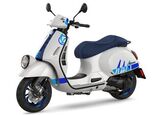

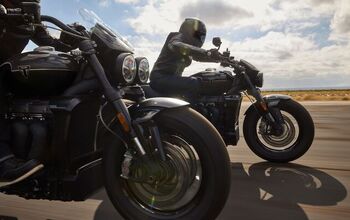

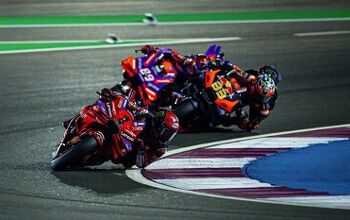
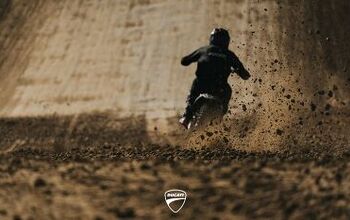
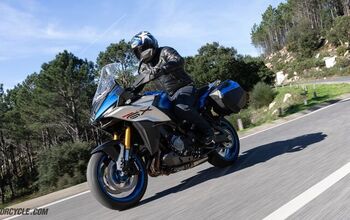
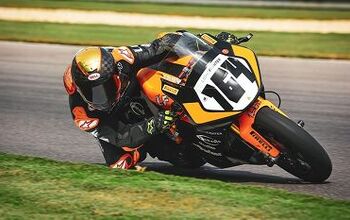





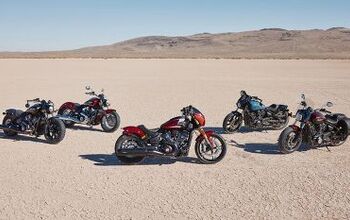


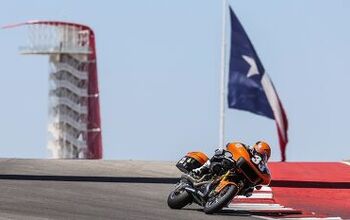


Comments
Join the conversation
Every time Gabe writes another article, it's f#$%g Christmas for me. They just seep into me, leaving mild bittersweet taste of madness. No others do.
P.S. Hard to say whether this can be interpreted as a compliment :)
Great timing, just watched "Road" again last night. Mirrored this column perfect.